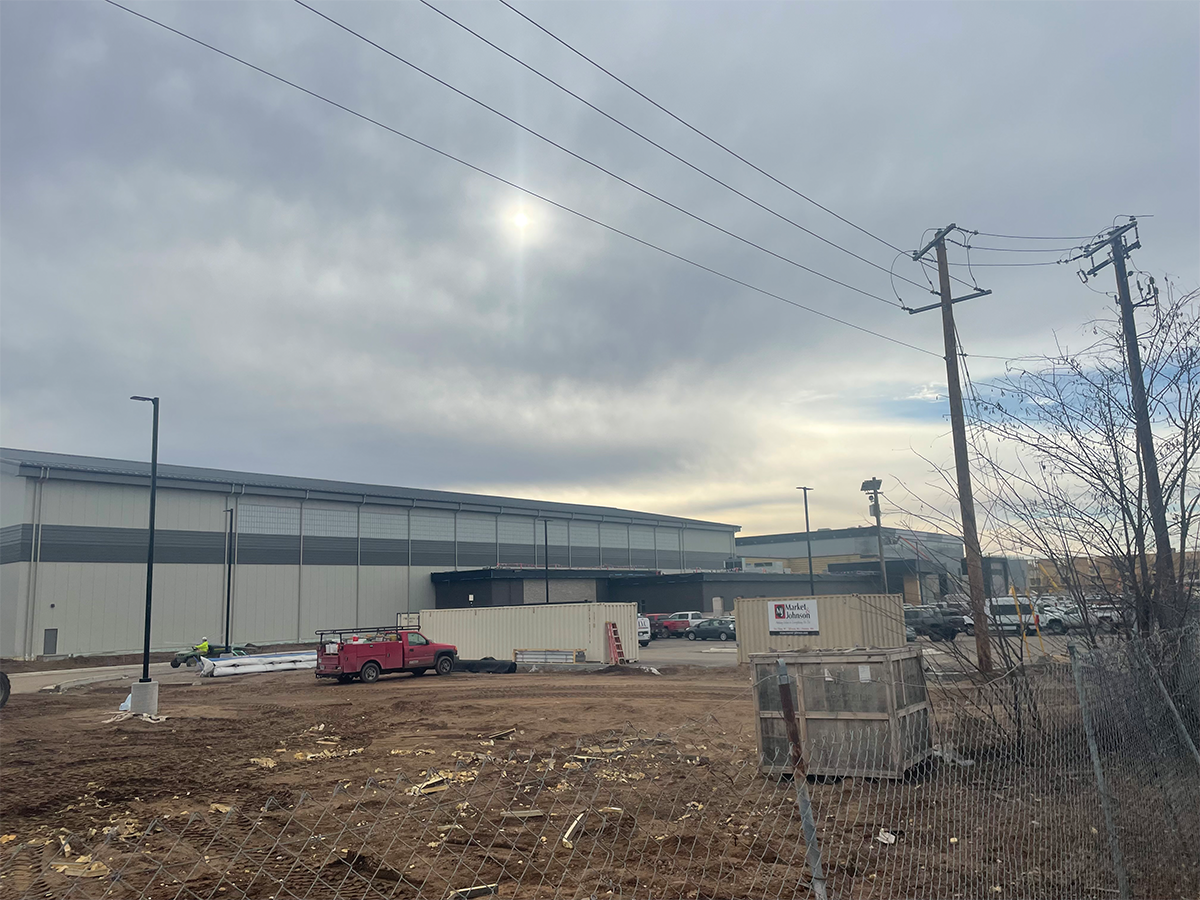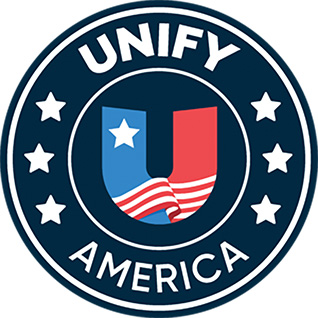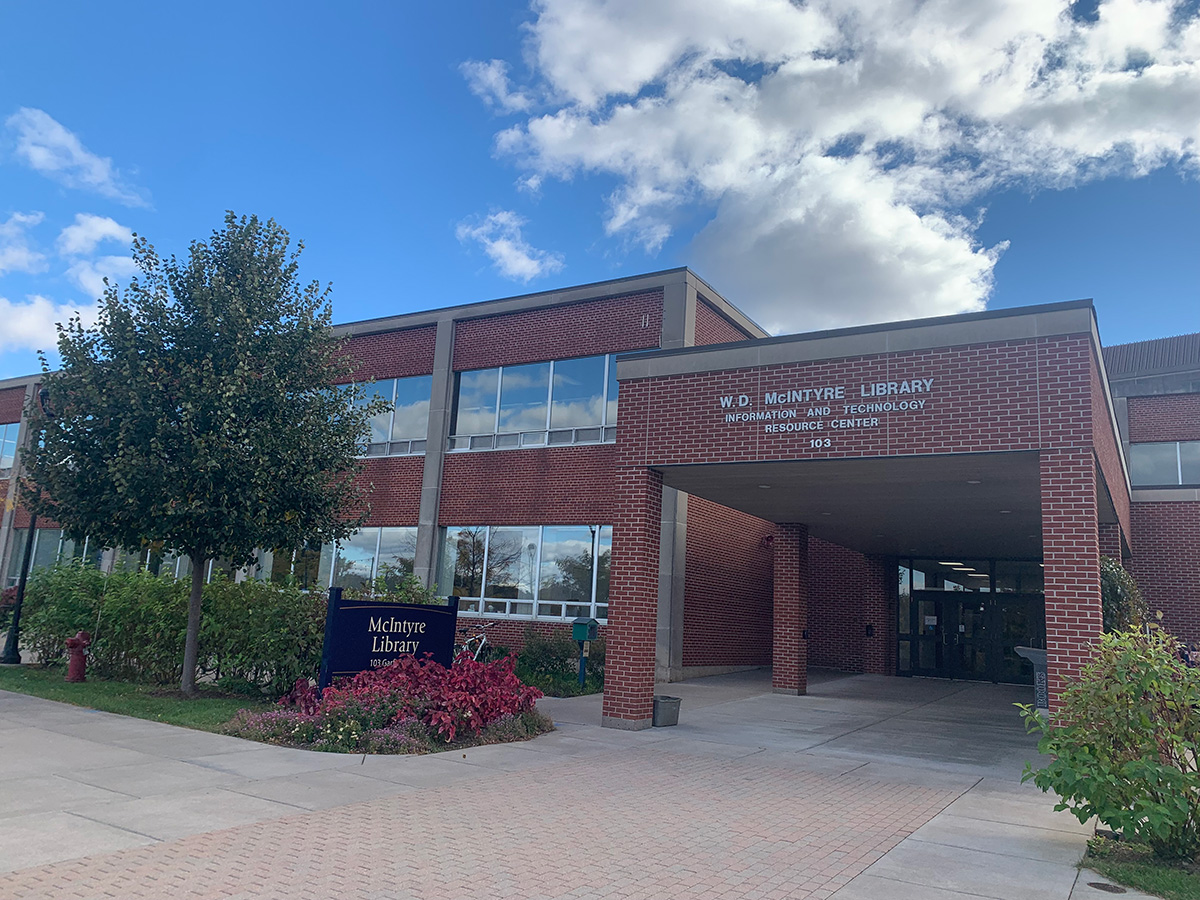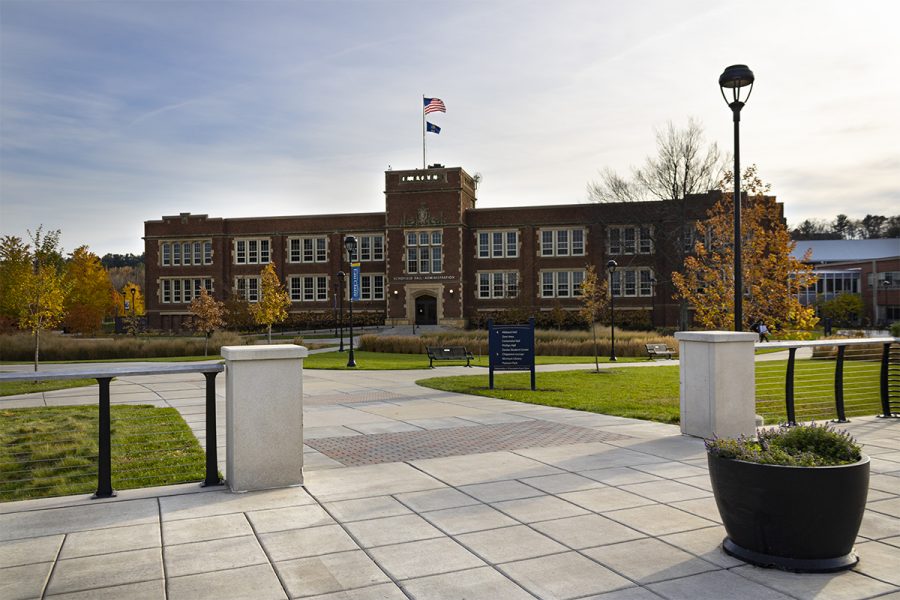UW-Eau Claire’s new County Materials Complex is set to become a certified green building by Leadership in Energy and Environmental Design (LEED) in 2024.
Set to open spring of 2024, the state-of-the-art complex will replace the 72-year-old Zorn Arena, which will see its final graduates pass through in May. Construction of the complex began in April of 2022.
The complex will house the John and Carolyn Sonnentag Fieldhouse, the Sonnentag Event Center and the Mayo Clinic Health System Diagnostic Imaging and Sports Medicine Center.
UW-Eau Claire’’s Student Office of Sustainability (SOS) has spent that time working toward making the complex a certified green building by LEED standards.
“The Sonnentag Center is our first step in decarbonizing our campus operations,” Sustainability Coordinator Lily Strehlow said. “UW-Eau Claire is the first campus in the UW System to begin this process and we are proud to be a leader in sustainability.”
LEED is the most widely-used green building rating system in the world.
As described on their webpage, the LEED system takes a holistic approach to building certification. Within the LEED framework, carbon, energy, water, waste, transportation, materials, health and indoor environmental quality are all factors taken into account.
Strehlow said SOS, in partnership with the Division of Finance & Administration, procured free LEED Green Associate training for students in addition to the certification of the County Materials Complex.
The funds to support this included a sum of $150,000 toward the certification costs and $200,000 toward the learning experience tied into the construction of the Sonnentag Center.
Strehlow said the funding was sourced from SOS, who regularly allocate segregated fees (student dollars) towards sustainability projects on campus.
“It’s been a long time coming. I’m a senior now, and I think we first started talking about this when I was a sophomore,” said Sydney McGuine, a fourth-year environmental public health student.
McGuine is the SOS senate director and has worked closely with the project. She said the SOS has been working with the Greenwood Consulting Group (GCG) toward fulfilling the LEED requirements. GCG operates out of Kansas City, KS.
According to GCG’s website, the organization works in connection with LEED to help building projects meet their performance goals. GCG team members meet with project organizers at the beginning of the process and see things through until the end.
“GCG was working with us from step one. Lots of planning was done in advance as well,” McGuine said. “I know the organization works on a variety of projects all over the place.”
SOS faculty advisor and professor James Boulter said working with GCG was a smooth and beneficial process.
“I have found the GCG team to be wonderful to work with, open to new ideas on engaging students on campus as part of the process, and highly knowledgeable and experienced on the LEED certification process,” Boulter said.
“LEED is like a massive checklist with various categories,” McGuine said. “It’s based on a points system. You earn points based on the improvements you make, and they accumulate as the project progresses.”
By LEED standards, it takes 40-49 credits to achieve the lowest level of certification. Above that, there are three higher levels of certification: silver, gold and platinum.
McGuine said the County Materials Complex is going toward gold level certification, meaning they are on track to earn 60-79 points — a significant feat by green building standards.
“The process of certification is embedded in the building from initial design through building commissioning, when the U.S. Green Building Council will verify the feature submitted as part of the LEED Gold application,” Strehlow said.
According to Strehlow, some features of the building will be reported on every five years post-construction to verify performance of the energy savings technology in the building.
McGuine said some points were simpler to earn than others, such as those earned by adding more bike racks to make modes of green transportation more accessible. Energy-related innovations, McGuine said, were more complicated to achieve.
“The combination of geothermal heat pump technology with the 2.8MW solar array (which will come online in 2025) means that the Sonnentag’s electricity use and its heating and cooling needs are net energy neutral,” Strehlow said.
“The Sonnentag Center has reduced its contributions to climate change dramatically — the only other sources of carbon are embodied from construction, landfilled waste, food from concessions, and visitor transportation associated with events held at the Sonnentag Center,” Strehlow said.
“This whole endeavor is very student-centered, ” McGuine said. “When we first started discussing the LEED certification at SOS, there was a great reaction from the members. When the decision was passed last year, the vote was unanimous.”
McGuine said the project received the same warm reaction when it headed to the Student Senate, where it was unanimously supported once again.
“The SOS has a long legacy of supporting sustainability initiatives on campus, and the student executives in SOS had been advocating for LEED certifications on all campus buildings for multiple years before this opportunity,” Strehlow said. “Overall, this is incredibly exciting.”
Wojahn can be reached at [email protected].














